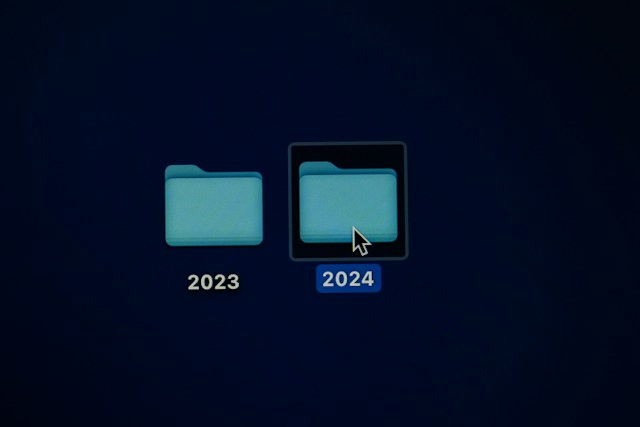
Dear Member,
2024 OUTLOOK OBSERVATIONS
- Policy Shifts and Uncertainty
Businesses should be prepared to enter uncharted economic waters in 2024 as it will be marked by policy shifts and uncertainty. This will create both winners and losers. Already, the business community in Zimbabwe is seized with uncertainties around regulations, taxes and revenue measures introduced in the 2024 National Budget. While National Treasury has moved in to “fine-tune” some of the measures (exemption of basic goods from VAT and reduction of Sugar Tax), the policy environment remains ambiguous. It is a fact that most African governments are squeezed between poor citizens and big financial holes in public coffers. It is also a reality that depending on aid or hand-outs alone will not do the trick and politicians across Africa are asking more of their tax collectors. It appears that taxing citizens is the only feasible solution within their reach. We should expect a lot of altering of both fiscal and monetary policies in 2024 which would undoubtedly usher an unstable business environment. High levels of policy uncertainty will also lower investment, employment, and economic output.
- Informalisation Trend to Continue
Different economic shocks have impacted the structure and shape of the Zimbabwean economy. With limited formal employment opportunities (especially for youth), there has been escalation of self-employment with some citizens moving into vending and small businesses. There is clear evidence the Zimbabwean economy is now largely informal given a proliferation of informal tuck-shops and road-side businesses (RSBs) in Zimbabwe. Our assessment of the business environment (taxes, cost of formalisation and regulations) suggests a trend of an explosion of RSBs as the informal economy becomes more entrenched in 2024 and beyond.
- Expired Legacy
In 2024, companies will experience resistance from leaders who have overstayed their brand value and are no longer useful to organisations. From a more global perspective, studies suggest that the quality of a firm’s leadership explain about 15% of the variance in company profitability. Just like in the game of football, fans lay most of the credit or blame for their team’s results on the manager. The nature of the CEOs job in Zimbabwe has obviously changed bearing in mind the unpredictable policies which tend to have big implications on the business. Frank Walter and Susan Scheibe (2012) identified a few relevant findings. In task-oriented behaviour—getting the job done—younger and older leaders appear to be equally effective. Age does not seem to impact a leader’s willingness to step up, issue directives, and provide rewards for performance. In contrast, however, age does seem to affect a leader’s openness to change. As leaders grow older, they become less willing to make changes and are less interested in innovation. Another study by Vincent Barker and Geroge Mueller (2002) found that older leaders spent less on research and development than younger ones. Research also suggests that older leaders are more likely to take a passive approach to their leadership role—for example, delegating many duties and becoming actively involved only in crisis situations. The operating environment in Zimbabwe requires leaders to be streetwise. This implies having practical rather than theoretical knowledge, such as what is learned on the streets rather than in MBA classrooms. This will be key in terms of their ability to navigate the economic tides of 2024.
- Brand Mutiny
Companies will experience desertion by top professionals who will leave with (i) brand currency, (ii) operational wisdom and (iii) premium clients. These professionals will either leave Zimbabwe or set up their own establishments. In a country experiencing significant economic headwinds coupled with high taxes, a new problem of a massive brain-drain has also emerged. Migration has essentially been a household strategy to address current and future risk. Zimbabwe is losing skilled professionals such as Lecturers, Engineers, Medical Practitioners (Doctors and Nurses) and Accountants to the USA, United Kingdom, Australia, and South Africa amongst many other countries. According to the 2022 Census Report, a total of 908,914 people emigrated from Zimbabwe at the time of the census. Most of the persons, 84% (761,548 out of 908,907) emigrated for employment reasons while 9% and 5% emigrated for family reasons and study/education respectively.
- Disruptive Innovation
Companies will experience shocks from smaller competitors who can provide products and services at a much cheaper, better, and faster turnaround cycle. Companies that are leveraging Information Technology (IT) are set to achieve lower costs and higher returns in the new era.
As Jorge Paulo Lemann, co-founder of 3G Capital would put it, “I’ve been living in this cozy world of old brands, big volumes, nothing changing very much and you could just focus on being very efficient and you’d be okay, but now we are being disrupted in all ways and we are running to adjust”. Change has become the new normal and company executives in today’s era are right to be worried. The Zimbabwean consumer is now price-sensitive and demanding more flexible services while business leaders are left to navigate an everchanging landscape. Industry players will have to build stronger defenses and become more efficient and innovative. There is no sector in Zimbabwe that is immune from the merciless influx of disruptors. A good example is how InnBucks is disrupting the payments system in the country. This theme will play-out across all key sectors of the Zimbabwean economy in 2024.
- Shift to Alternatives & Offshore Investments
In 2024, we expect most money managers in Zimbabwe to start moving away from traditional investment assets (listed equities and fixed income) to alternatives. Another key trend will be the increased attention on offshore investment opportunities. Geographical diversification is of paramount importance as it limits downside risk. By focusing investments in one market, such as Zimbabwe, a portfolio is prone to a significant risk of decline.
- Non-Bank Funding Options
In 2024, businesses in Zimbabwe will have to explore different funding models. Traditionally, attracting capital to finance a project has mostly depended on the conventional financiers such as banks. In fact, lending activity amongst banks in Zimbabwe has slowed down due (i) limited USD liquidity, (ii) conservative lending philosophies amidst high risk of non-performing loans (NPLs) and (iii) focus on non-funded income (fees and commissions). However, many businesses continue to face difficulties in raising the funds needed to actualise their ideas through traditional fund providers. There will be a need to explore innovative and alternative financing methods in 2024 and this could mean exploring regional and international funding sources.
- Meritocracy Trajectory
In a new world order that is characterised by production processes which are driven by Ai and robots, it is difficult to envision the future of a struggling businesses reeling under sub-optimal capacity utilisation levels. Zimbabwe remains littered with dogs and zombie companies that are stagnant and have moribund prospects, limited cashflows and low market share. A major concern is that such companies are “uncompetitive survivors” and a barrier to productive growth given that the survival of weak companies contributes to lowering the average overall productivity. Such companies are detrimental to the economy as they lock up capital and talent that should be available to more successful and dynamic companies in other sectors of the economy. In 2024, companies will experience chaotic growth cycles if they do not rethink their corporate structures. Keeping brand clowns who masquerade as C-suite executives will result in historic failures.
- Risk of Hostility
The flow of money and wealth in Zimbabwe is unevenly distributed. This means that share price weaknesses could present the risk of hostile take-overs. A hostile takeover usually occurs when a company — or a person — attempts to take over another company against the wishes of the target company’s management. Hostile bidders or corporate tend to approach their prey opportunistically, when a target’s share price is depressed, or a company is facing a crisis. Company management should therefore adopt a robust shareholder engagement programme to build confidence in, and understanding of, the company’s strategic plans. Management teams should be alert and wisen up to hostile takeovers by employing a range of defenses. Share buybacks, whereby the company repurchases its own stock from the market at current price levels are recommended in 2024.
- Increased focus on ESG Issues
There has been significant transformation in the recent years to move towards sustainability and climate smart strategies although environmental constraints such as water and air pollution, deforestation, land degradation, droughts, veld fires, poor waste management, and unsustainable energy supply remain to be addressed. In 2024, businesses will increasingly integrate environment and climate change considerations into their strategies to ensure long term success and mitigate risks associated with climate change. We expect policy makers and business leaders to increasingly realize the importance of addressing environmental issues and climate considerations.
Kind Regards,
Batanai Matsika
Managing Partner

